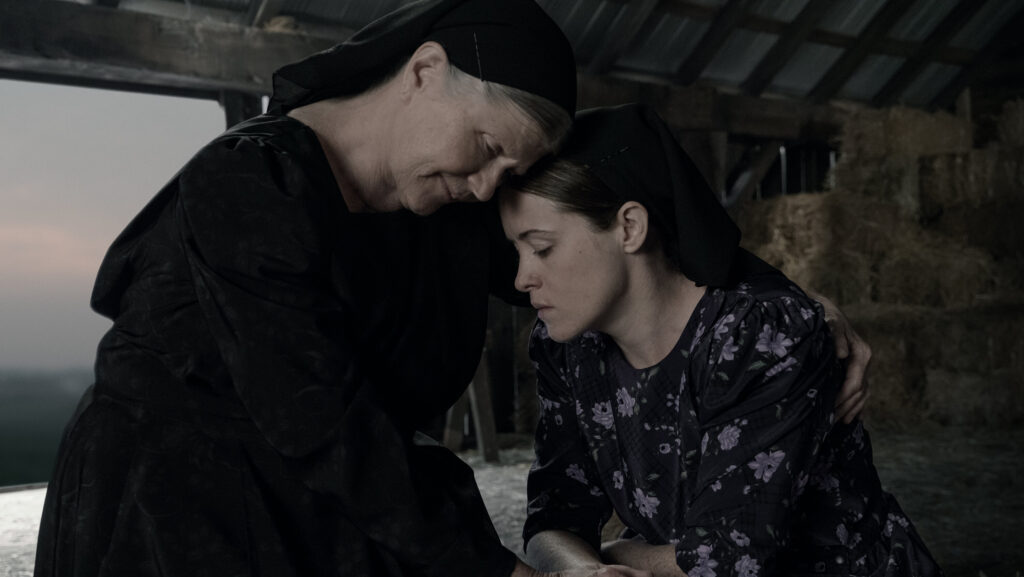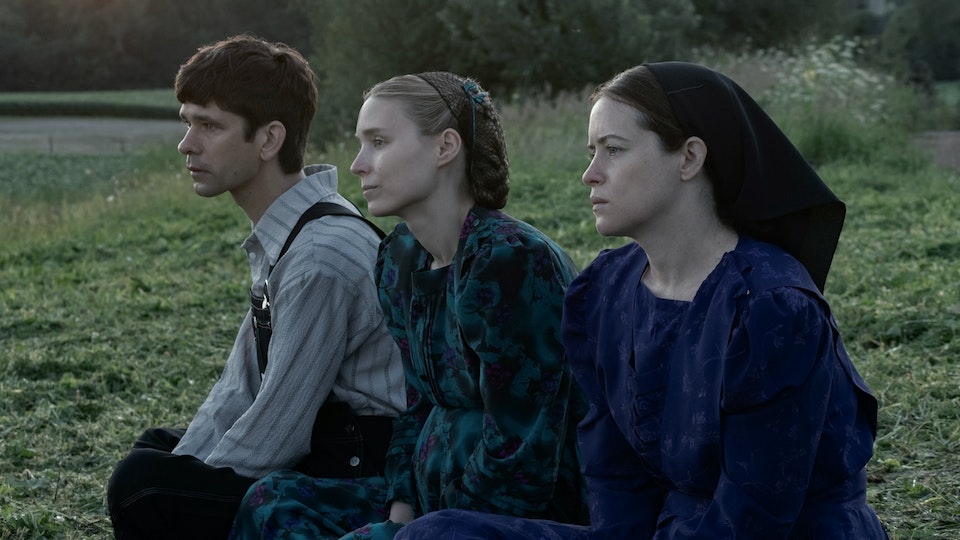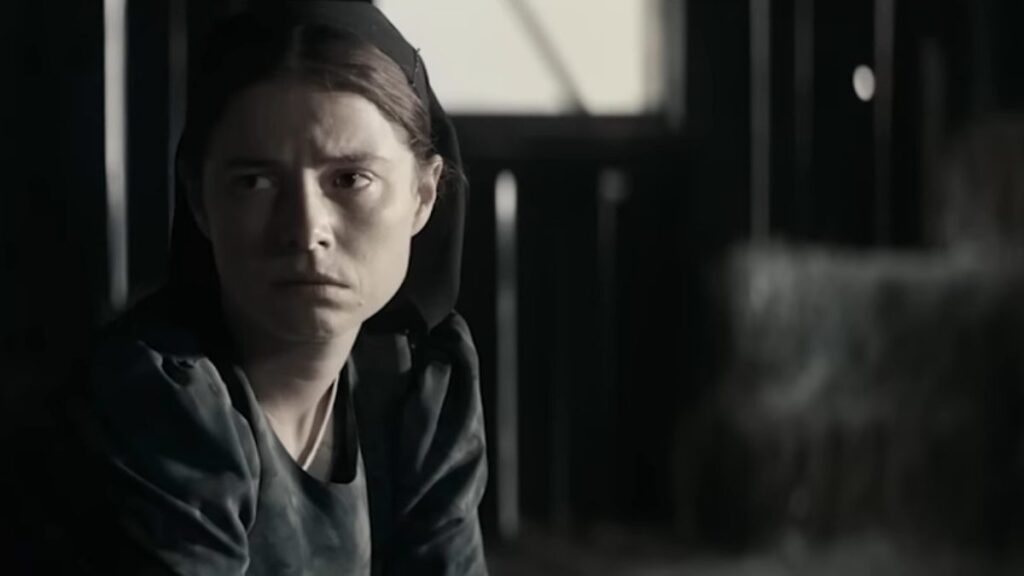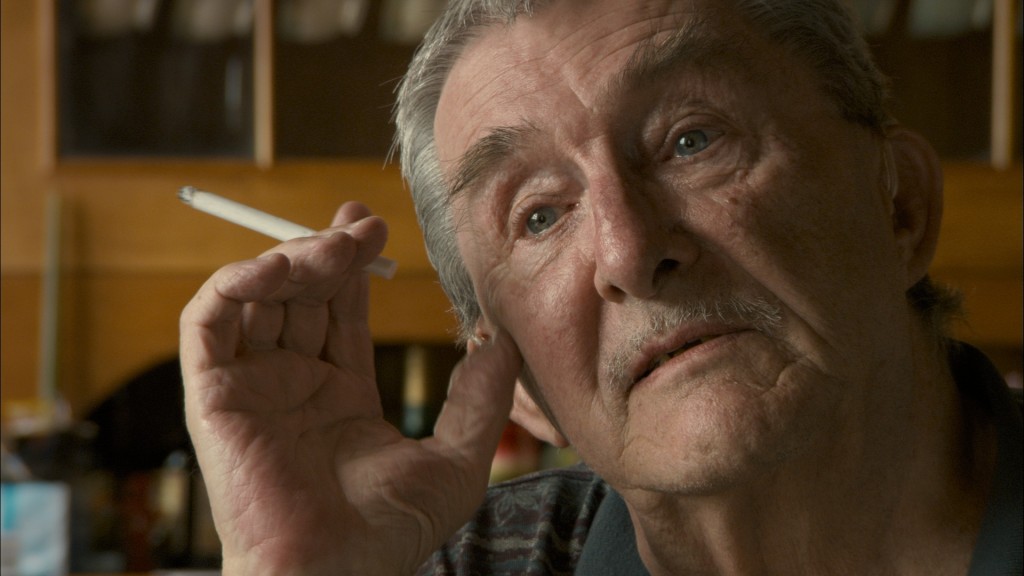
In the drama Women Talking, a Mennonite farming settlement is rocked by predatory sexual abuse; some of the men are locked up, and the rest are away trying to bail them out. That leaves the women a moment to decide whether to stay and fight off the the men or to abandon their homes and flee for safety.
This is based on actual events in a Mennonite colony in Bolivia in 2011 – and the story was told in the slightly fictionalized book by Miriam Toews, then adapted into this screenplay by director Sarah Polley.
The women know that the return of the men in imminent, so they are under a deadline to debate whether to stay and fight or to leave. IMO that is a false choice, because they really can’t expect to fend off the abuse from the men in such an isolated environs. What they are really doing is assessing the cost of leaving – losing their husbands and older sons, the community that they have invested their lives in building and any possessions that they can’t carry on a horse-drawn buggy. The drama in Women Talking stems from the life and death consequences of their decision, as well as its urgency. It does seem to me that,once they have made a decision, it takes a lot of movie running time to implement it.

This is essentially a six-hander, with almost all the dialogue between the women played by Claire Foy, Rooney Mara, Jessie Buckley, Judith Ivey and Sheila McCarthy and the one remaining man, the gentle schoolteacher August (Ben Whislaw). August is serving as the taker of minutes.
This is an exceptionally well-acted movie. All six actors are superb. Frances McDormand produced Women Talking and plays an almost non-speaking role, although she ably deploys her fierce visage.

Claire Foy’s character has the most pivotal moment, and Jessie Buckley’s gets some sparks, too. The scenes with Whislaw and Rooney are especially heartbreaking.
The Wife liked Women Talking much more than I did (and she had read much of the book, but paused, not wanting to spoil the movie). There were plot points that confused me, and I was impatient with all the decision-making process.
I was very disappointed, because I am a longstanding admirer of Sarah Polley. Polley’s very first film, Away from Her, was my pick for best film of 2007, and Polley’s adapted screenplay was Oscar-nominated. She followed that by directing her original screenplay Take This Waltz, with its remarkable performance by Michelle Williams, and the astonishing autobiographical documentary Stories We Tell.
Polley’s screenplay for Women Talking has also been Oscar-nominated, but it’s a failure anytime I am watching a movie and thinking about anything other than what is going to happen to her next? In Women Talking, I kept thinking about stuff like has it only been an hour?, THAT would never happen and was this originally a stage play? That’s never good, and it’s not what Polley intended.
A Mennonite colony in 2011 Bolivia is an odd setting for a Monkees song to pop up, but Polley’s use of Daydream Believer is inspired (and I think I recognized Anne Murray’s cover over the closing credits). Polley had brilliantly used Video Killed the Radio Star in Take This Waltz.
So, Women Talking is original and strongly acted, but not the most watchable movie.

